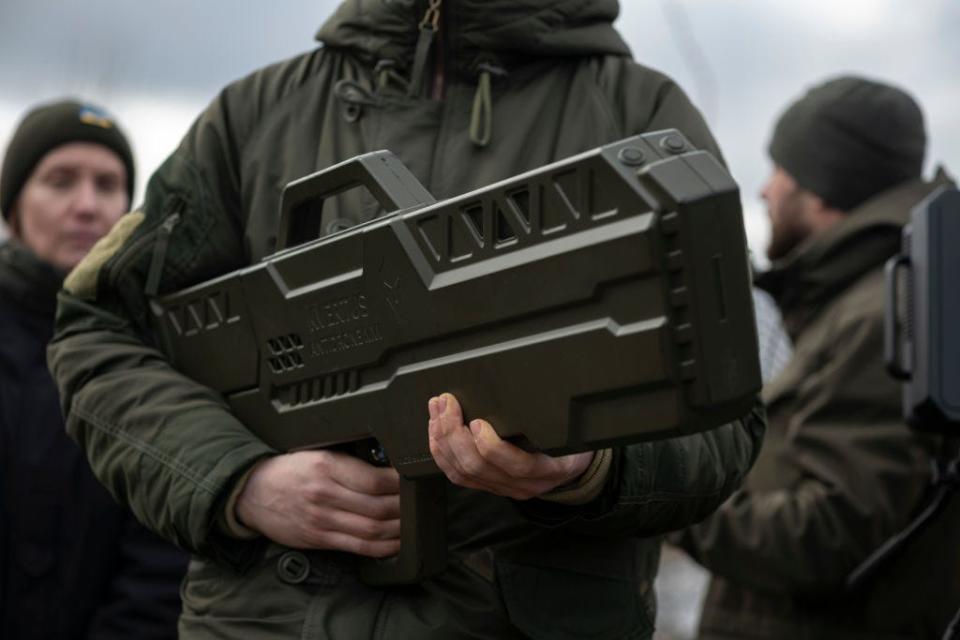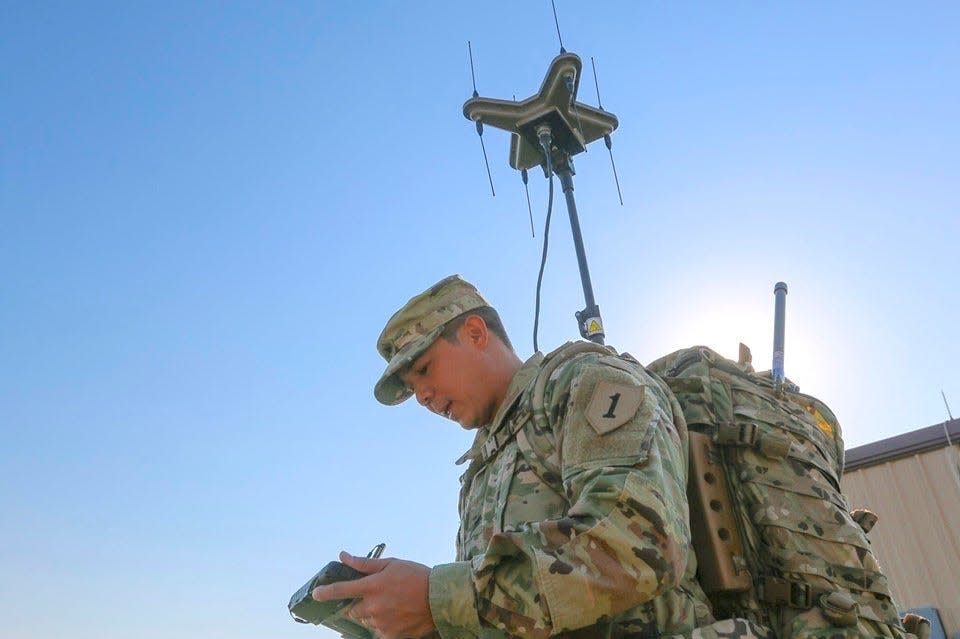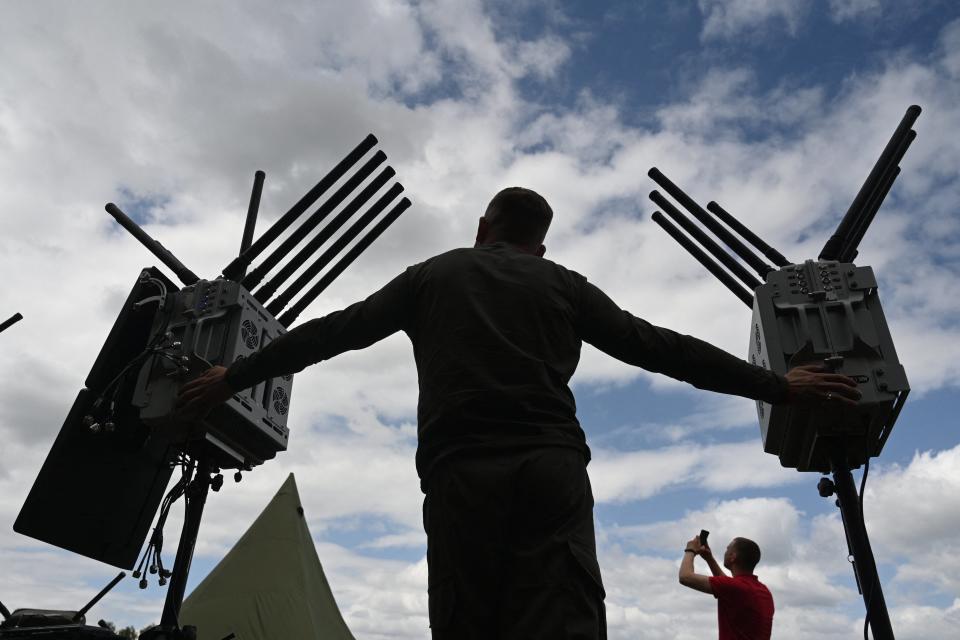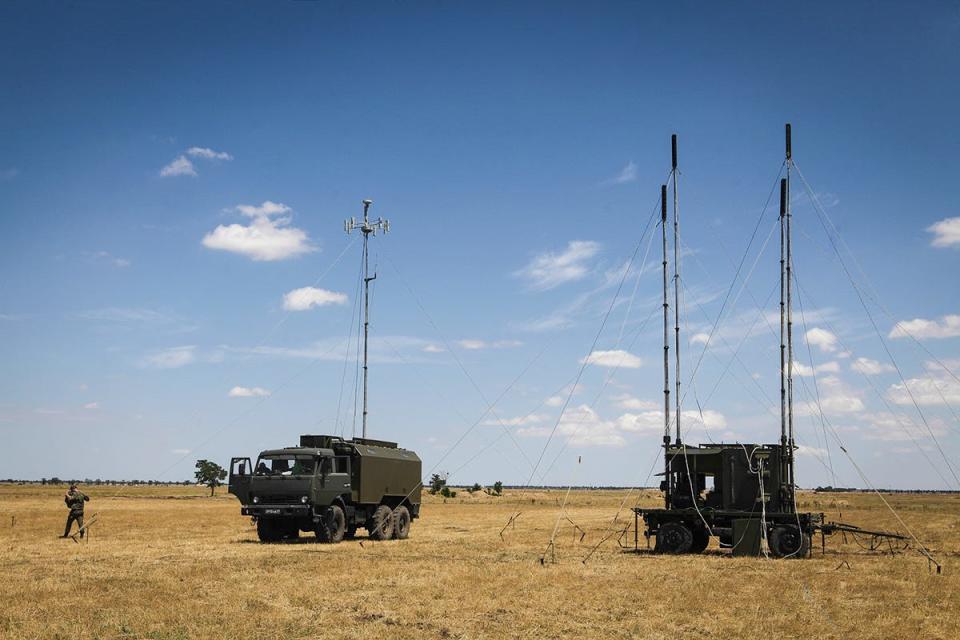If the US doesn't win the electronic warfare fight, the joint force will 'lose' and 'lose very quickly,' Air Force commander says
Electronic warfare like what the world is seeing in Ukraine could be decisive in future wars.
US military leaders have been closely watching how electronic warfare is shaping the war in Ukraine.
The US needs to dominate the electromagnetic spectrum, or it will lose quickly, an Air Force officer said.
Future wars could be decided by electronic warfare like Russia and Ukraine are using right now to interrupt communications, defeat unmanned platforms, and even degrade precision weaponry.
For the US, if it doesn't dominate that invisible domain and win the fight in the electromagnetic spectrum, it will "lose" and do so "very quickly," an Air Force wing commander said.
At the C4ISRNET Conference on Wednesday, US Army Brig. Gen. Ed Barker, the Program Executive Officer for Intelligence, Electronic Warfare and Sensors, and US Air Force Col. Josh Koslov, commander of the 350th Spectrum Warfare Wing, discussed the challenges facing the US in the electronic warfare space and the efforts to find solutions to these problems.
"Electronic warfare is a fire," not unlike certain other weapons systems like artillery, Koslov said, "and the ability to integrate those fires in support the joint force's commander's scheme of maneuvers is more important now than ever."

Both Barker and Koslov noted that dominating the electromagnetic spectrum in a fight against near-peer adversaries like China and Russia would be a close one in a war and that the US must maintain the edge.
"The spectrum is a bad place to be second, and if we lose in the spectrum, or are unable to effect the spectrum, the joint force will lose, and we're going to lose very quickly," Koslov said.
The US has acknowledged the growing importance of electronic warfare in its warfighting strategies, recognizing not only the need to figure out how to defend against the enemy's use of it but also how to fight with it.
Electronic warfare is a broad term for fighting involving elements of the electromagnetic spectrum. Increased US interest in it more recently has been driven by the ongoing conflict in Ukraine, where electronic warfare tactics, such as GPS spoofing and signal jamming, have shaped the fighting.

The US has been watching the war closely to determine key takeaways, and it's been, as a defense expert previously told Business Insider, an "intelligence bonanza" for American forces.
One thing the US has observed in Ukraine is the degradation of some of its more advanced, precision-guided weapons systems by Russian jamming.
In March, Daniel Patt, a senior fellow at the Hudson Institute, wrote in a statement to Congress that the 155mm GPS-guided Excalibur artillery shell "had a 70% efficiency rate hitting targets when first used in Ukraine" but that "after six weeks, efficiency declined to only 6% as the Russians adapted their electronic warfare systems to counter it." Russian efforts have also impacted the GMLRS launched by the HIMARS and JDAMs.

Patt explained that "the peak efficiency of a new weapon system is only about 2 weeks before countermeasures emerge." That information could prove vital for a future great-power fight against an adversary like China or Russia.
At the C4ISRNET conference, Barker called the electromagnetic spectrum another "terrain" of battle.
"We have to treat the EMS as terrain," he said. "You have to be able to hold terrain, you have to be able to maneuver inside of it, and you also have to be able to affect the enemy."
Barker mentioned a recent electronic warfare tabletop exercise, which looked at over 70 different capabilities spread across the joint force and how they fit into the various battlefield strategies and potential fighting scenarios.

He said the exercise helped them to identify "gaps we need to focus on," such as understanding more about what both allies and adversaries look like in the spectrum, as well as needing a "layered approach" to fighting electronic warfare. It's a complex problem, and he said there's no "silver bullet."
At the conference, both Barker and Koslov highlighted the importance of having systems communicate with one another about key data and noted that when the US acquires new technology from industry partners, prioritizing electronic warfare defenses and capabilities is vital.
Barker said "we're realizing that we have to build, essentially, an EW arsenal across the landscape to be able to go at these different kinds of threats."
Read the original article on Business Insider


